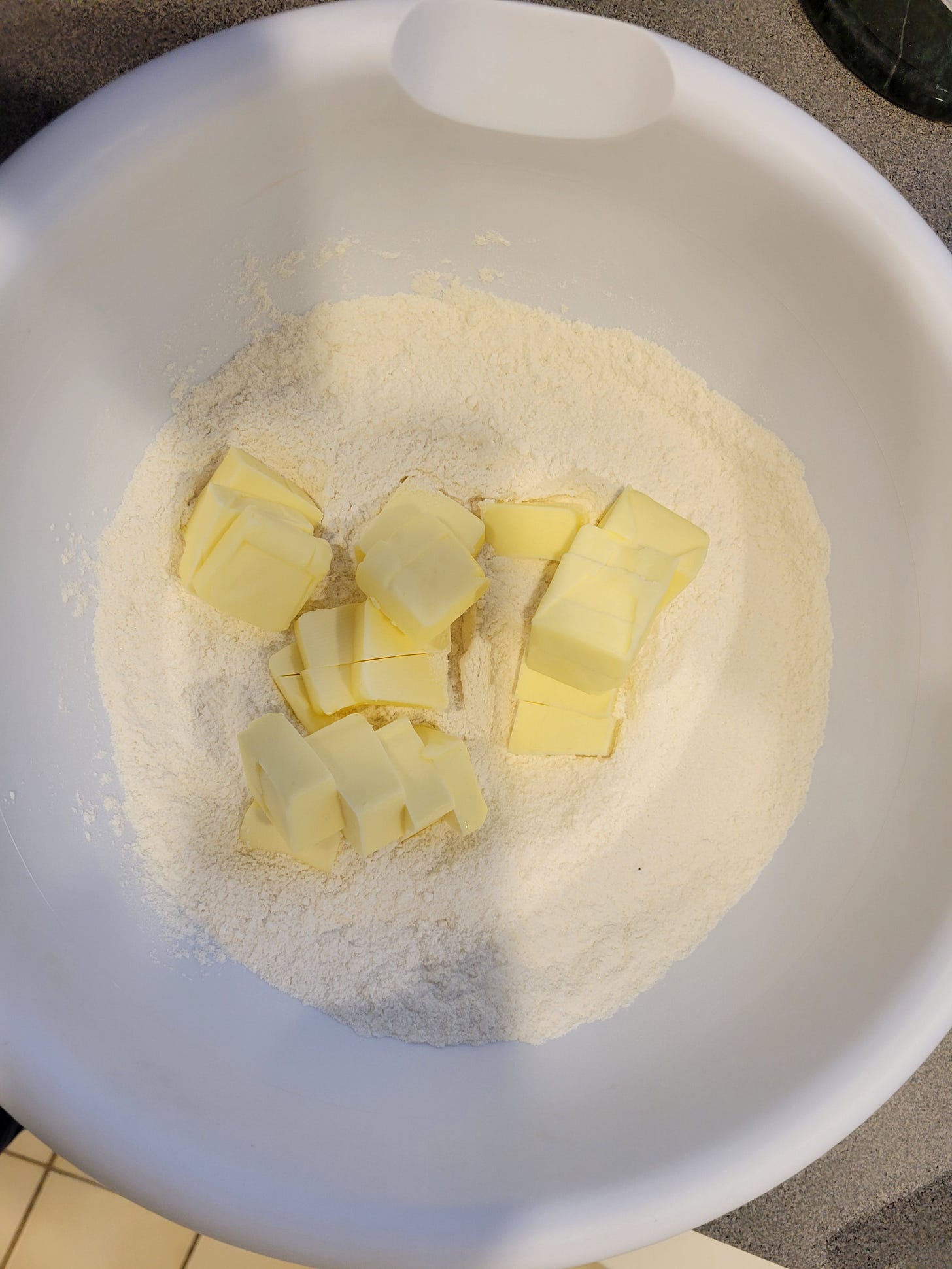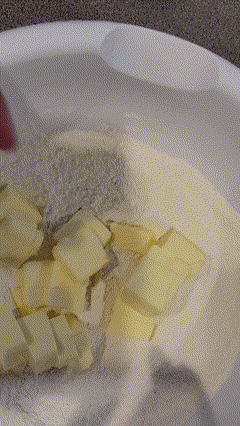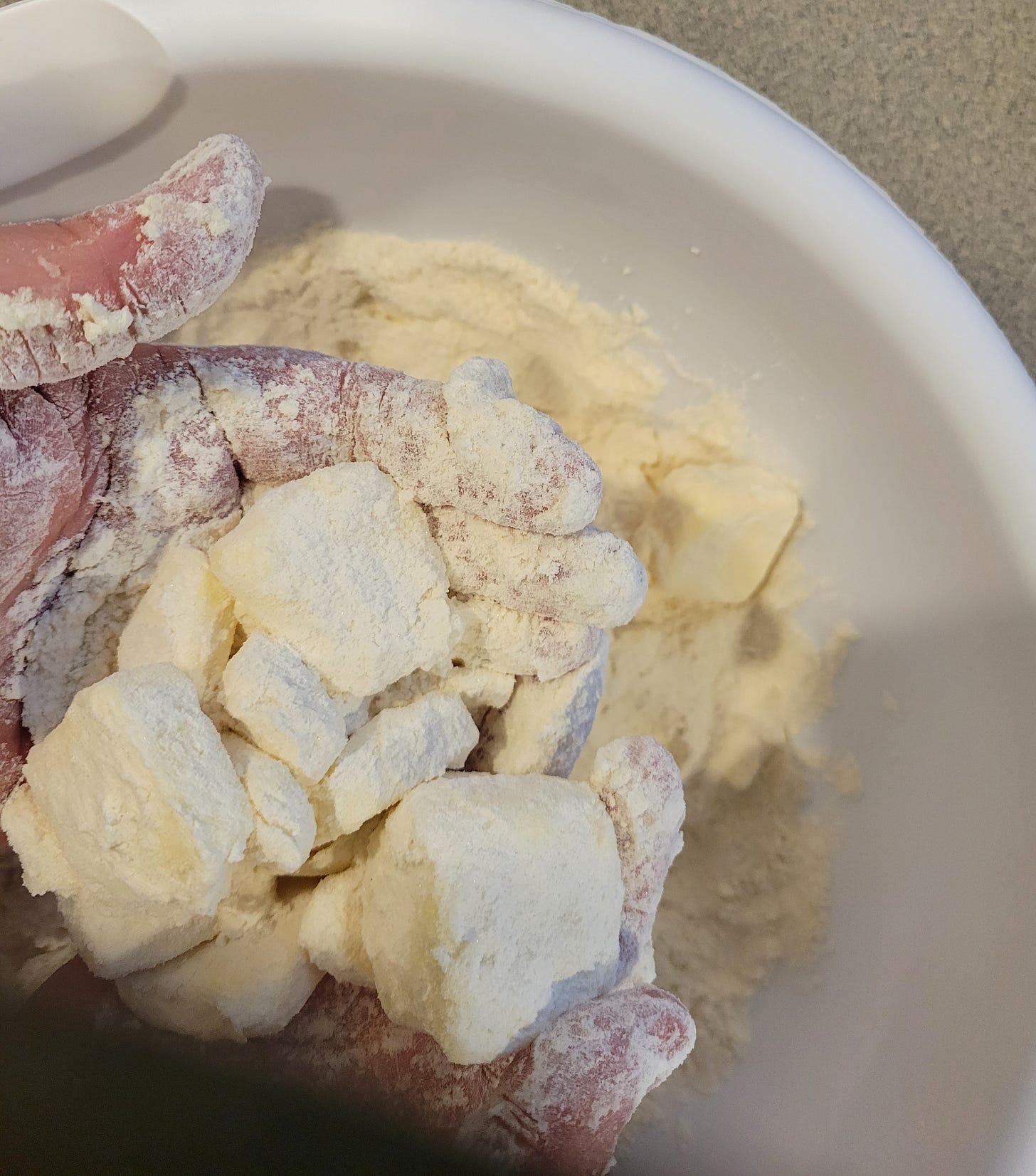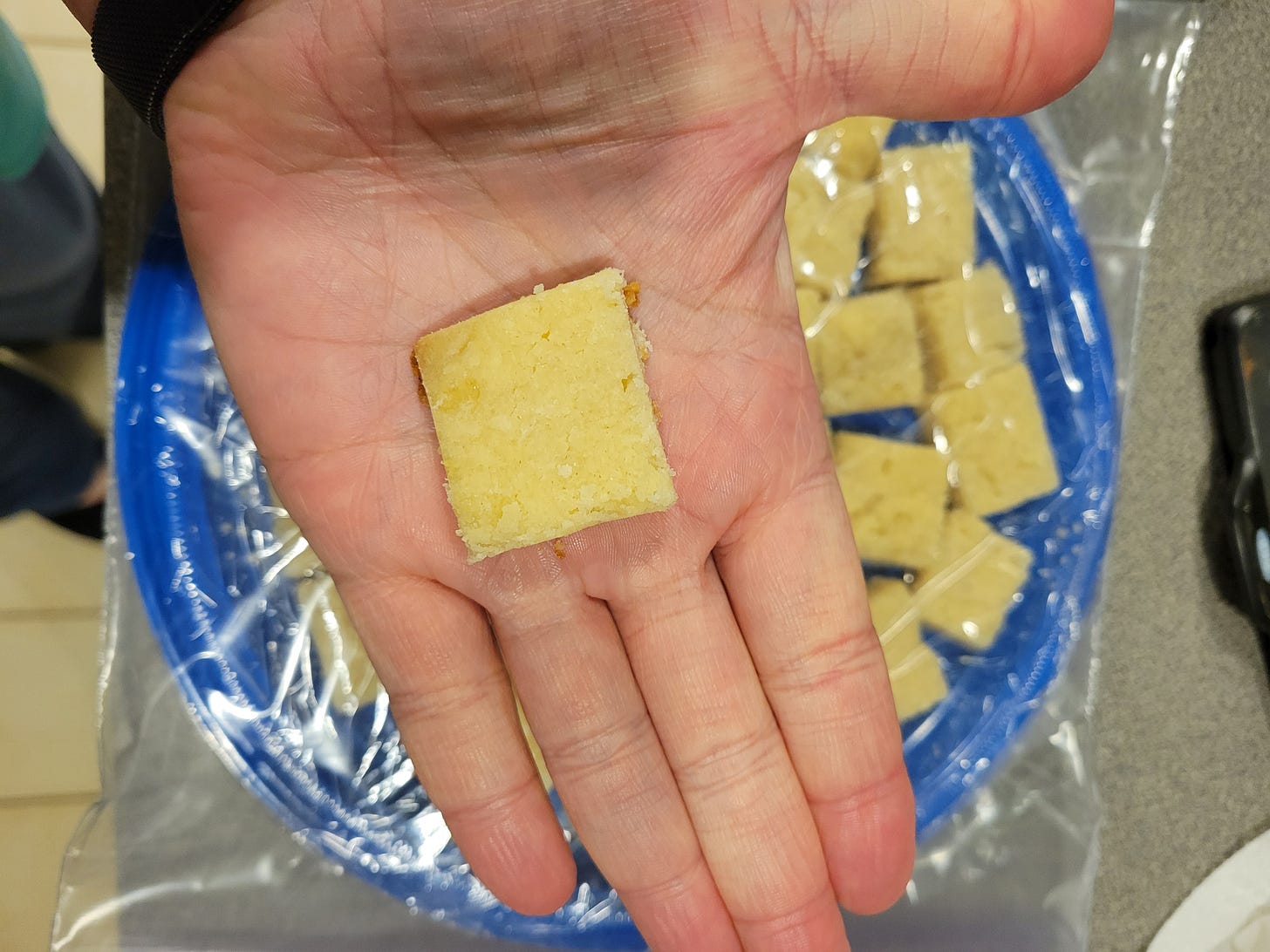Consider the Miracle of Shortbread
Mood Tools Week 10: Bake a little patience into your writing life
If any of you were in suspense about the fate of the middle-of-the-night voice note I talked about leaving for myself in last week’s newsletter—May the Flork Be With You—I’m pleased to report that my sleepy insight actually did unstick the particular widget keeping me up that night!
I’m decidedly less pleased to report, however, that the changes I made immediately caused a couple of other story widgets to gum up.
And I’m downright livid to report that video footage of my reaction to this unacceptable outbreak of sticky widgets was leaked online:
While no actual laptops were harmed in the writing of this newsletter, I can assure you if a meteor had crashed through my office window and pulverized my laptop and back-up hard drives last week, I’d have probably thrown a raging party, and I’m an introvert.
For a little context, two weeks ago I was a writer with enough patience in my tank to playfully quip that I was working on the “end of a draft that wants to be written about as much as a toddler wants to sleep after Trick-or-Treating.”
Two weeks later, though, my patience is running dangerously low.
If impatience were simply a matter of turning into a raging primate laying waste to my computer, I wouldn’t be particularly worried, but impatient writers lay waste to a hell of a lot more than their laptops.
Impatient writers stubbornly latch onto their first marginally workable ideas, convinced they’re the light at the end of the dark night of their writerly souls.
Impatient writers are tempted to scrap the novels they were infatuated with yesterday—or last week or (sigh) last month—to chase the bright and shiny new ideas tempting them sorely.1
Worse yet, impatient writers—prepare your hearts, now—are at risk of giving up entirely.2
Enter patience.
Did you just roll your eyes at me, dear reader? It’s OK to admit it if you did. I, for one, rolled my eyes so hard I think I might have pulled something3. Because telling writers they need to be patient is almost as irritating as telling insomniacs they really should get some sleep.
Look, I’m just at irritated about this call to patience as you are,4 so let me put this another way: Writing requires the same patience it takes to bake shortbread because writing, like shortbread, is a task that feels impossible until—like magic—it’s not.
So let’s move this post into the kitchen, shall we?
At first glance, the recipe for shortbread looks deceptively simple. Three ingredients—flour, sugar, and butter. Easy, right?
Wrong!
While it’s true the recipe starts simply enough (not even the most culinary-impaired baker can mess up measuring two cups of flour and half a cup of sugar into a bowl), mixing said flour and sugar is the first time this recipe will test your patience—stir too fast and you risk what the Swedish-chef calls floofing de fleur :
But flour and sugar do not a batch of shortbread make.
You need butter.
Two chilled sticks cut into cubes to be exact.
And you know what mixes super easily?
Not cold butter in a flour mixture, that’s for sure!
And to add insult to injury, after you plop that butter on top of your expertly mixed flour and sugar, that butter has the audacity to sit there waiting for a mixing miracle that feels impossibly out of reach:
A mixing miracle that feels about as impossible as marrying two plot elements in the crossroads moment in act three of your novel, in fact.
But then you remember that folks have been baking shortbread—and finishing novels—for centuries upon centuries, so mixing a little butter into some flour and sugar can’t actually be impossible, right?
Right.
That said, though, you do have to mix those ingredients oh so patiently. Too fast and floof goes de fleur, remember? Plus, you need to take breaks to dip your fingers into ice water to keep the heat of your hand from melting the butter, which is annoying at best and a reason to quit at worst. But just when you’re about to pack in this foolish furry-fingered adventure, you start to notice something like progress:
I mean, sure, you have to keep pulling apart the butter bits that are stuck together, and your heroically patient fingers are putting in some serious time pincha-pincha-pinching, but soon enough, you’ve made some real progress:
So you keep pincha-pincha-pinching, and—what feels like a lifetime later—the mixture finally transforms into the sandy consistency the recipe describes, and you find yourself muttering, holy shit it worked!
Do I really need to belabor the metaphor here?
Your ending may seem impossible, but keep type-a, type-a, typing long enough, and you’ll eventually have something that looks a whole heck of a lot like a workable draft. In writing, as in baking shortbread, then, patience makes the impossible possible.
But let’s get back to that shortbread, shall we?
Because as you consult the next step in the recipe, you realize with horror that you’re being asked to mold this sandy mixture into two perfectly round disks cut into eight perfect wedges.
You blink at your recipe, frantically searching for some wet ingredient you’ve missed that will bind this Sahara-dry mess, but, alas, there’s not. Apparently the sadist who wrote this recipe truly expects you to mold this crumbly mixture into something resembling a pair of giant cookies.
Once again you find yourself staring at a mixture waiting on a miracle that looks like it will never happen.
It’s impossible, you say, and—once again—it certainly looks impossible.
But if centuries of humans have managed to form this crumbling sand into shortbread, then so can you.
And if you abandon the notion of free-forming your dough into circles and choose instead to mold them into squares with the assistance of a plastic sandwich container, so be it:
But then—horror of horrors!—after all that work to mold your ingredients, when you flip your belabored metaphor for a third act onto the baking sheet, both of your squares sport sizeable zig-zagged fault lines.
The recipe doesn’t include this step, but it’s critical to the success of your shortbread that you pause for a moment to take a deep breath before attempting to patiently—so patiently—repair the cracks in your dough.
Then, after scoring the dough’s surface and edges, baking it in a 350 degree oven for 25 minutes, and trimming away the crumbly, brown edges, voila:
A perfectly sweet and beautiful treat!
Or, in the case of our novels, a satisfying and memorable ending.
Yes, I know, I know, I know.
Given my current creative mood, I’m not exactly thrilled to be reminded that patience is an important tool in our writer’s mindset toolkit either, but it is.
And the more impatient we’re feeling with our projects—did I happen to mention that I’m feeling pretty impatient with my novel just now?—the more critical it is to take a deep breath and commit to patiently—so patiently—forming the dough of our words into an elusive ending that’s bound to come into focus if you can bear to keep pincha, pincha, pinching just a little while longer.
A Little Something Extra
If baking isn’t the best pathway to patience for you, try listening to this deep cut from one of my all-time favorite indie folk-rock artists, Josh Ritter.
Take Away from Mood Tools Week 10: Consider the Miracle of Shortbread
In writing, as in baking shortbread, patience makes the impossible possible.
*Whistles*
Not me, mind. I’m far too stubborn.
Metaphorically, of course.
In case I haven’t mentioned it enough, my ending has become something of a literary gauntlet, and an American Ninja Warrior I am not. If you’re not yet familiar with the delightful wackiness that is American Ninja Warrior, take a look at this video of stunt woman Jesse Graff’s historic 2016 run. From the clear comradery among the competitors to her pet pig cheering her from the sidelines to her masterful run itself, I love everything about this clip:














This is so funny- I've made shortbread TWICE now this week and both times it has turned out too gooey. The first time I hand mixed it and then remembered the previous times I've used a food processor to mix the flour and butter. I tried that and it still came out gooey, in spite of using the same recipe to tremendous success in summer's past. Now who or what to blame...the new oven, perhaps?
Sigh. Thanks for sharing your journey here with writing and baking!
Now I’m hungry. And also exhausted from watching that amazing clip.